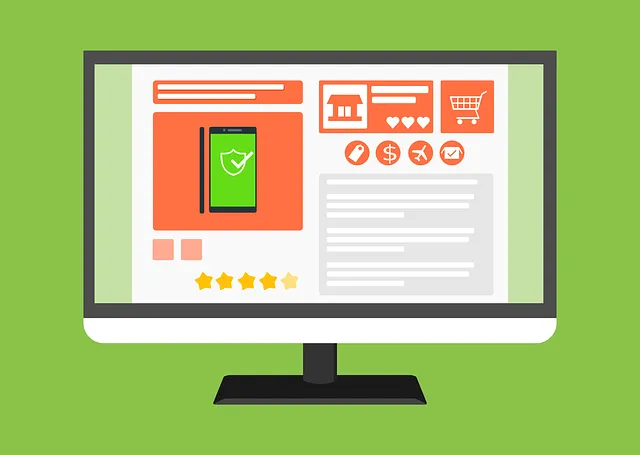Private Internet Access (PIA) is a vital tool for safeguarding sensitive information in medical research, environmental activism, and scientific data sharing. It provides robust encryption for secure data transmission, ensuring confidentiality of patient information and intellectual property. PIA's no-logs policy guarantees privacy by not recording browsing activities, which is crucial for maintaining anonymity. The service's Anonymizing Browser feature is particularly beneficial for researchers in clinical trials and environmental activists, who rely on this to protect their identities and data from surveillance and potential breaches. PIA's global network infrastructure offers a consistent and reliable connection, enabling secure communication across different regions, which is essential for international collaboration. This allows professionals to confidently share and access critical information without the fear of digital exposure, thereby facilitating advancements in various fields while respecting privacy and integrity.
Navigating the digital landscape, medical researchers worldwide confront the dual challenges of data sensitivity and cybersecurity. The intersection of innovation and privacy necessitates robust solutions that safeguard sensitive research findings without compromising access to global data repositories. This article explores the pivotal role of Private Internet Access (PIA) in enabling secure and private data exchange for the international medical research community. We delve into how VPN solutions enhance security, discuss the critical need for anonymizing browsers in maintaining research integrity, and present case studies that highlight PIA’s contribution to groundbreaking discoveries. Join us as we unravel the essentials of staying secure online while advancing the frontiers of medical science.
- Navigating Data Sensitivity: The Role of Private Internet Access in Medical Research
- Enhancing Security and Privacy for Global Medical Researchers with VPN Solutions
- The Importance of Anonymizing Browsers for Environmental Activists and Scientists in Research Integrity
- Case Studies: How Private Internet Access Has Facilitated Breakthroughs in Medical Research Worldwide
Navigating Data Sensitivity: The Role of Private Internet Access in Medical Research

Medical researchers worldwide operate in a data-sensitive environment where privacy and security are paramount. The sensitive nature of medical data requires robust protections to safeguard patient confidentiality, intellectual property, and research integrity. Private Internet Access (PIA) emerges as an indispensable tool for this demographic, offering a secure tunnel that encrypts data between the user and the internet. This encryption is crucial when accessing and sharing sensitive health information across disparate networks, mitigating the risk of unauthorized access or data breaches. PIA’s no-logs policy further enhances privacy by ensuring that individual browsing activities are not monitored, recorded, or stored.
In addition to securing medical data, PIA’s anonymizing browser capabilities are equally beneficial for researchers collaborating globally. The anonymizing features protect the identities of researchers and their participants, which is particularly important in sensitive research areas such as clinical trials. This anonymity extends beyond the realm of medical research; it also supports environmental activists and scientists who rely on secure communication channels to share critical data without fear of surveillance or censorship. PIA’s global network infrastructure provides a consistent and reliable connection, facilitating the seamless exchange of information that is both private and secure, thus enabling researchers to focus on advancing medical knowledge rather than protecting their digital footprints.
Enhancing Security and Privacy for Global Medical Researchers with VPN Solutions

Private Internet Access (PIA) VPN solutions play a pivotal role in safeguarding the security and privacy of medical researchers operating on a global scale. With the increasing reliance on digital data for research, maintaining the confidentiality of sensitive patient information and proprietary research findings is paramount. PIA’s robust encryption protocols and anonymous IP addressing ensure that researchers can securely access databases and communicate with colleagues without exposing their identity or the origin of their inquiries. This anonymity is crucial when cross-referencing data from different regions, as it prevents third parties from tracking user activity or compromising the integrity of research outcomes.
Furthermore, PIA’s VPN services offer a reliable platform for medical researchers to navigate the complex web of international regulations and compliance standards. By masking their true IP addresses, researchers can access and share data across borders with reduced risk of data breaches or unauthorized access. This is particularly significant in environmental activism and scientific research, where an Anonymizing Browser for Environmental Activists and Scientists becomes a critical tool for preserving the sanctity of their work and protecting the privacy of their sources. PIA’s VPN solutions thus empower researchers to conduct their investigations with confidence, knowing that their digital footprint is secure and their findings are protected from unintended or malicious exposure.
The Importance of Anonymizing Browsers for Environmental Activists and Scientists in Research Integrity

Case Studies: How Private Internet Access Has Facilitated Breakthroughs in Medical Research Worldwide

Private Internet Access (PIA) has played a pivotal role in enabling medical researchers worldwide to conduct their work with greater privacy and security, often in areas where sensitive data is paramount. A case in point is the groundbreaking research on the genetic factors of a rare disease, where anonymized data could only be shared securely through PIA’s encrypted connections. This allowed international collaboration without compromising the privacy of participants or exposing the data to potential breaches. Similarly, researchers in different continents working on a novel vaccine formula utilized PIA’s services to safely transfer complex algorithms and sensitive preliminary trial results. The anonymizing browser feature provided by PIA ensured that their innovative work remained confidential until it was ready for publication. These instances underscore the importance of secure and private internet access in the realm of medical research, where the integrity and security of data are non-negotiable. PIA’s robust infrastructure has thus become an indispensable tool for researchers who must navigate the complex landscape of global collaboration while safeguarding the confidentiality and intellectual property of their findings. The adoption of PIA by these researchers is indicative of how critical a role privacy tools play in today’s data-driven scientific endeavors, allowing for the free exchange of information without fear of surveillance or theft.
Global medical research stands to benefit immensely from the adoption of Private Internet Access (PIA) services, as outlined in this article. By addressing data sensitivity, enhancing security and privacy for researchers worldwide, and highlighting the role of anonymizing browsers for environmental activists and scientists in upholding research integrity, it’s clear that PIA solutions are pivotal in today’s interconnected world. Case studies have consistently shown how such VPN services have not only protected sensitive data but also accelerated medical breakthroughs by enabling seamless collaboration across borders. As the landscape of medical research evolves with technology, adopting robust privacy tools like PIA becomes increasingly non-negotiable for maintaining the integrity and advancement of this critical field.
